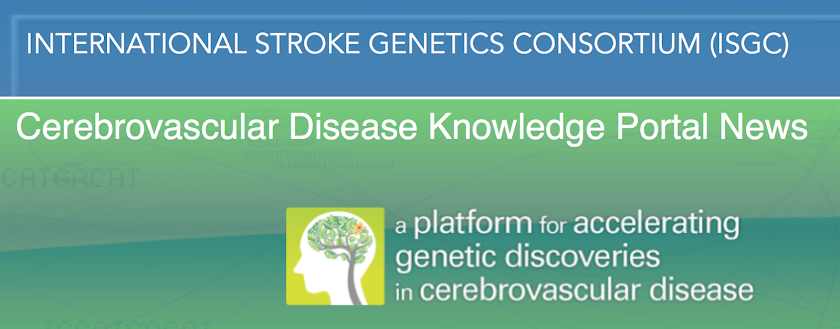 |
| CVDKP home page |
The CVDKP is constructed on a software architecture originally developed for the Type 2 Diabetes Knowledge Portal (T2DKP), which is the central product of the Accelerating Medicines Partnership in Type 2 Diabetes (AMP T2D). AMP T2D is a public-private partnership between the National Institutes of Health, the U.S. Food and Drug Administration, biopharmaceutical companies, and non-profit organizations that is managed through the Foundation for the NIH. AMP seeks to harness collective capabilities, scale, and resources toward improving current efforts to develop new therapies for complex, heterogeneous diseases.
The ultimate goal of AMP T2D is to increase the number of new diagnostics and therapies for patients while reducing the time and cost of developing them, by jointly identifying and validating promising biological targets for type 2 diabetes. The T2DKP furthers that goal by aggregating, harmonizing, and displaying genetic association and epigenomic results along with user-friendly analysis tools, allowing research biologists who would not individually be able to amass and manipulate these large datasets to glean insights from the data.
Working towards these same goals for other complex diseases, the platform and analysis tools constructed for the T2DKP have been extended to other disease areas. The Cerebrovascular Disease Knowledge Portal, based on the same infrastructure, was recently created in partnership with the International Stroke Genetics Consortium. Now, with the advent of the Cardiovascular Disease Knowledge Portal, researchers may access a three-member Knowledge Portal Network for the genetics of cardiometabolic and cerebrovascular disease.
Data in the CVDKP directly relevant to heart disease include genetic associations with atrial fibrillation, electrocardiogram traits, plasma lipid levels, and myocardial infarction. Additional association datasets are available for type 2 diabetes and glycemic traits, anthropometric traits, measures of kidney function, and psychiatric traits. The complete list of datasets and their descriptions is available on the CVDKP Data page.
Like the Cerebrovascular Disease Knowledge Portal, the CVDKP is connected to the American Heart Association Precision Medicine Platform (PMP) to provide an additional avenue for accessing cardiovascular genetic data. Currently, summary statistics from the AFGen GWAS and AFGen exome chip analysis datasets are deposited in the PMP.
The CVDKP team welcomes all suggestions, comments, questions, and submission of relevant datasets. Please contact them at help@cvdgenetics.org!
